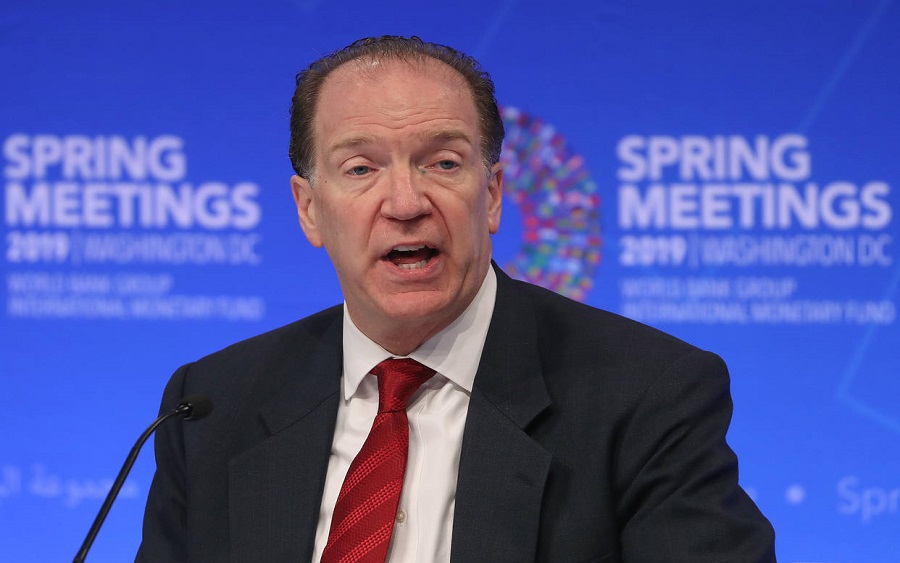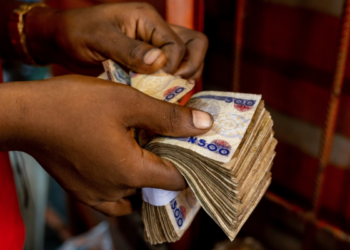The World Bank has forecasted that the global economy is set to rebound by 4% in 2021, while Nigeria’s economy is expected to resume at 1.1%.
The World Bank released this on Monday in its January 2021 Global Economic Prospects. The World Bank said:
- “The global economy is expected to expand 4% in 2021, assuming an initial COVID-19 vaccine rollout becomes widespread throughout the year. A recovery, however, will likely be subdued, unless policy makers move decisively to tame the pandemic and implement investment-enhancing reforms.”
READ: COVID-19: 115 million people are likely to fall into extreme poverty in 2020 – World Bank Group
The World Bank urged that administrators needed to focus on improving business environments, and increase labour and product market as the pandemic had severely affected the global economy.
World Bank Group President, David Malpass, said:
- “While the global economy appears to have entered a subdued recovery, policymakers face formidable challenges — in public health, debt management, budget policies, central banking and structural reforms — as they try to ensure that this still fragile global recovery gains traction and sets a foundation for robust growth.
- “To overcome the impacts of the pandemic and counter the investment headwind, there needs to be a major push to improve business environments, increase labour and product market flexibility, and strengthen transparency and governance.”
READ: Nigeria’s economy will grow by 2.4% on average in 2021-25 – CEBR
The World Bank added that the 2020 economic fallout was slightly less severe than previously projected, citing shallower contractions in advanced economies and a more robust recovery in China. However, disruptions to activity in emerging economies were “more acute than expected.”
READ: World Banks provides NIMC with £172 million Covid-19 protective equipment
Sub-Saharan Africa
The World Bank added that Nigeria’s economy was estimated to have contracted 4.1% in 2020, as the effects of the pandemic impacted economic activities in all sectors, even across the region.
- “In South Africa, where economic activity was on weak footing before COVID-19, output is estimated to have fallen 7.8% last year. The country suffered the most severe outbreak of the pandemic in the region and underwent strict lockdowns that brought the economy to a standstill.”
READ: Rejigging Nigeria’s economic growth engine: The courage to act
The World Bank said oil exporters in the region grappled with sharply lower prices, however, contractions in agricultural commodity exporters were less steep.
- “Growth in the region is forecast to rebound moderately to 2.7% in 2021.”
READ: CIBN: Our economic challenges are of a global dimension – Emefiele
The World Bank said it expected growth in Nigeria to resume at 1.1% in 2021, citing that Nigeria’s economic rebound would be affected by lower oil production due to quotas.
- “Growth in Nigeria is expected to resume at 1.1% in 2021. Activity is nevertheless anticipated to be dampened by low oil prices, OPEC quotas, falling public investment due to weak government revenues, constrained private investment due to firm failures, and subdued foreign investor confidence.
- “In South Africa, growth is expected to rebound to 3.3% in 2021. An expectation of weak growth momentum reflects the lingering effects of the pandemic and the likelihood that some mitigation measures will need to remain in place.”
READ: COVID-19: Income remains unstable for many households – NLPS survey
What you should know
- Nigeria’s Gross Domestic Product (GDP) in real terms declined by -3.62% (year-on-year) in Q3 2020, thereby marking a full-blown recession and second consecutive contraction from -6.10% recorded in the previous quarter, Q2 2020.
- The Federal Government of Nigeria stated that the latest recession in the country would be short-lived, as it expected Nigeria to return to positive growth soon unlike during the 2016 recession.
READ: COVID-19: Best and worst case scenarios for the Nigerian economy
























